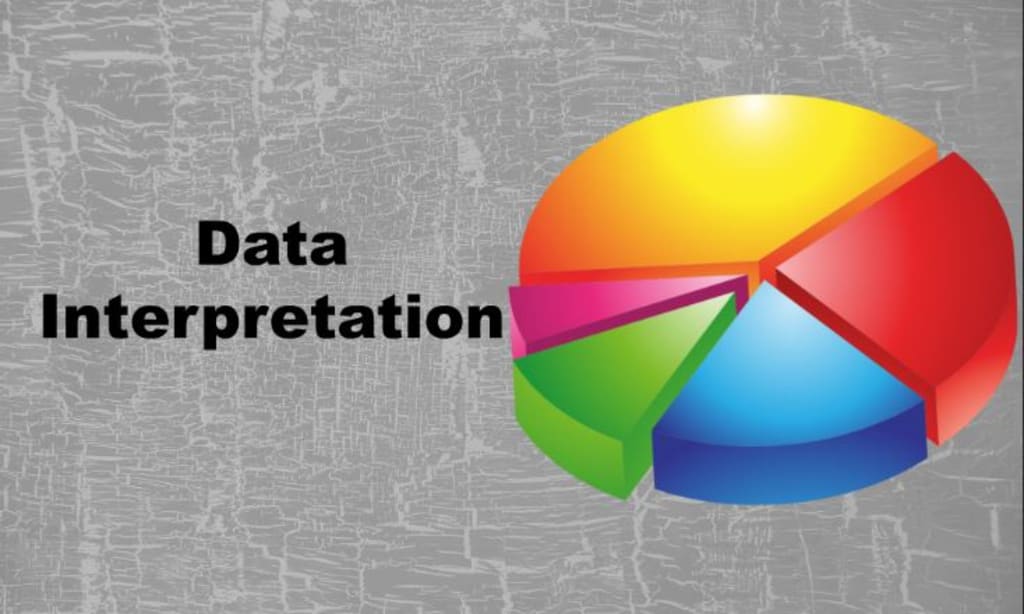Data Analytics and Interpretation: a deep dive into Implementations, significance, and procedural challenges
Data analytics and interpretation in research and commerce have become a paramount objective for institutions worldwide in the post-pandemic era.

Data analytics and interpretation in research and commerce have become a paramount objective for institutions worldwide in the post-pandemic era. The ability to extract meaningful insights from this data has become a critical factor in making accurate and informed decisions. Failing to harness the power of data analysis carries the risk of lagging in an increasingly competitive marketplace. Fortunately, the tools and capabilities required to make sense of enormous datasets are now within humanity's reach. This article delves into how businesses can benefit from data analysis and interpretation, highlighting the promising opportunities for aspiring data professionals in the commercial realm.
Understanding Data Analysis and Interpretation
Data analysis and interpretation involve the systematic examination of data using statistical and analytical tools to uncover patterns and relationships. Analysis can be quantitative or qualitative depending on the nature of the data. The quantitative analysis employs statistical methods to analyze numerical data, while qualitative analysis focuses on non-numerical data such as text or images. Given the sheer volume of data involved in day-to-day decision-making, human effort alone is insufficient, necessitating the support of automation through machine learning and AI tools. Interpretation complements analysis by extracting meaningful insights and informing well-informed decisions.
The Significance of Data Analytics and Interpretation in Research and Commerce
Data analysis empowers businesses to gain valuable insights into customer behavior and expectations. By examining customer data, organizations can identify patterns and trends that inform their marketing and sales strategies. Pinpointing the most relevant customers and targeting them during opportune moments becomes possible.
The more data utilized for analytical decision-making, the higher the accuracy and efficacy of day-to-day decisions. Operational data analysis enables businesses to identify inefficiencies and bottlenecks in their processes, improving productivity and reducing costs. Moreover, by analyzing market data, organizations can identify both opportunities and challenges in the marketplace, enabling them to make strategic decisions that provide a competitive edge.
Data analytics was once an unrecognized discipline, with many business decisions relying on experienced guesswork and assumptions. The advent and rise of data analytics have rendered this approach obsolete, underscoring the indispensability of data-driven insights in modern commerce. Data analytics and interpretation in research are also essential in 2023. As the amount of information available to humanity is gargantuan. And not putting them to good use can be rather detrimental. And with the increase in volume, the insights generated from this data will only become more accurate.
The Challenges of Data Analytics and Interpretation
Despite the numerous benefits of data analysis, several challenges exist when implementing data analytics methodologies.
Data Quality
The reliability and authenticity of the data source directly influence data quality. Inaccurate or tampered datasets can yield erroneous results, thereby negatively impacting decision-making.
Integration Challenges
Data from various sources often come in different formats, requiring meticulous attention to detail and dedicated effort to analyze for generating meaningful insights.
Expertise
With the increasing availability of training for data professionals, acquiring the necessary skills for competent data analysis has become more accessible. Businesses can train and deploy data professionals efficiently, provided they are willing to invest the required time and resources.
Temporal Limitations
Extracting insights from extensive datasets can be time-consuming, even with automation support. The tools required for these operations are often expensive to train and optimize in terms of time and finances.
Expenses
Implementing data analysis processes can be costly, particularly when acquiring specialized software and infrastructure. Additionally, the scarcity of skilled human resources in the field of data analytics poses a further challenge for businesses.
Fortunately, the emergence of an independent industry in data analytics is accelerating, with academic institutions playing a vital role in this growth. This symbiotic relationship fosters mutual development and unprecedented advancement.
Conclusion
In 2023, data has become an indispensable element for ensuring smooth commercial operations. The sheer volume of data necessitates the involvement of automation in decision-making processes. A competent data professional in 2023 should be equipped with the necessary skills to navigate this landscape. The responsibilities entrusted to data analysts are consequential, making the rigor of their training and expertise crucial. Fortunately, in 2023, acquiring and honing the skills required for large-scale analytics ventures has become more accessible than ever before. After completing training, data professionals can find abundant opportunities for employment and skill development in this rapidly growing industry.
About the Creator
Enjoyed the story? Support the Creator.
Subscribe for free to receive all their stories in your feed. You could also pledge your support or give them a one-off tip, letting them know you appreciate their work.





Comments
There are no comments for this story
Be the first to respond and start the conversation.